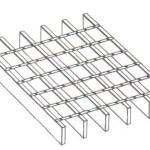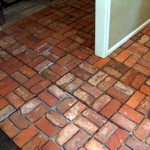Essential Aspects of Installing Snap Lock Wood Flooring
Snap lock wood flooring offers a quick and convenient installation process, making it a popular choice for DIY enthusiasts and home renovators. With proper preparation and a thorough understanding of the steps involved, you can achieve a stunning and durable floor that will enhance your home's aesthetic appeal.
Preparation
Before embarking on the installation process, it is crucial to prepare the subfloor adequately. Ensure that it is level, flat, and free of any imperfections or debris. Consider using a moisture barrier underneath the flooring to protect against potential moisture damage. Also, remove any baseboards or trim that may obstruct the flooring's installation.
Plan Layout
Determine the starting point of your flooring and plan the layout to minimize waste. Typically, it is recommended to start from the center of the room and work towards the edges. Check the manufacturer's instructions for any specific layout recommendations pertaining to the type of flooring you have chosen.
Laying the First Row
Position the first plank against the starting wall with the groove facing the wall. The tongue of the adjacent plank should fit snugly into the groove of the first plank. Use a tapping block and mallet to gently tap the planks together, ensuring a secure connection. Continue this process until the first row is complete.
Locking the Planks
The snap lock system makes it easy to connect the planks. Angle the plank at a 45-degree angle and insert the tongue into the groove of the previous plank. Gradually lower the plank until it snaps into place, creating a secure bond. Repeat this process for all subsequent rows.
Staggering Joints
To enhance the stability and durability of your floor, stagger the joints between the planks. This means that the joints of adjacent rows should not align directly above one another. This technique helps distribute weight evenly, reducing the likelihood of gaps or buckling over time.
Trimming and Finishing
Once the flooring is installed, trim the planks to fit around obstacles such as doorways or closets. Use a miter saw or a jigsaw for precise cuts. Finally, reattach any baseboards or trim that were removed before installation.
Tips for Successful Installation
- Follow the manufacturer's instructions meticulously.
- Use a tapping block and mallet instead of a hammer to avoid damaging the planks.
- Allow the flooring to acclimate to the room's temperature and humidity for at least 24 hours before installation.
- Leave a small gap between the flooring and walls to allow for expansion and contraction.
- Protect the installed floor from moisture and heavy objects during the first 24 hours.

How To Install Lock Engineered Hardwood Flooring

How To Install Flooring Project Tutorial Bob Vila

How To Install Lock Engineered Hardwood Flooring

How To Install Lock Engineered Hardwood Flooring

How To Install Laminate Flooring For Beginners

Guide To Installing Laminate Flooring Diy Family Handyman

How To Install Lock Engineered Hardwood Flooring

How To Install Laminate Floors

How To Install Hardwood Flooring For Beginners

Lock Wood Flooring Kährs








